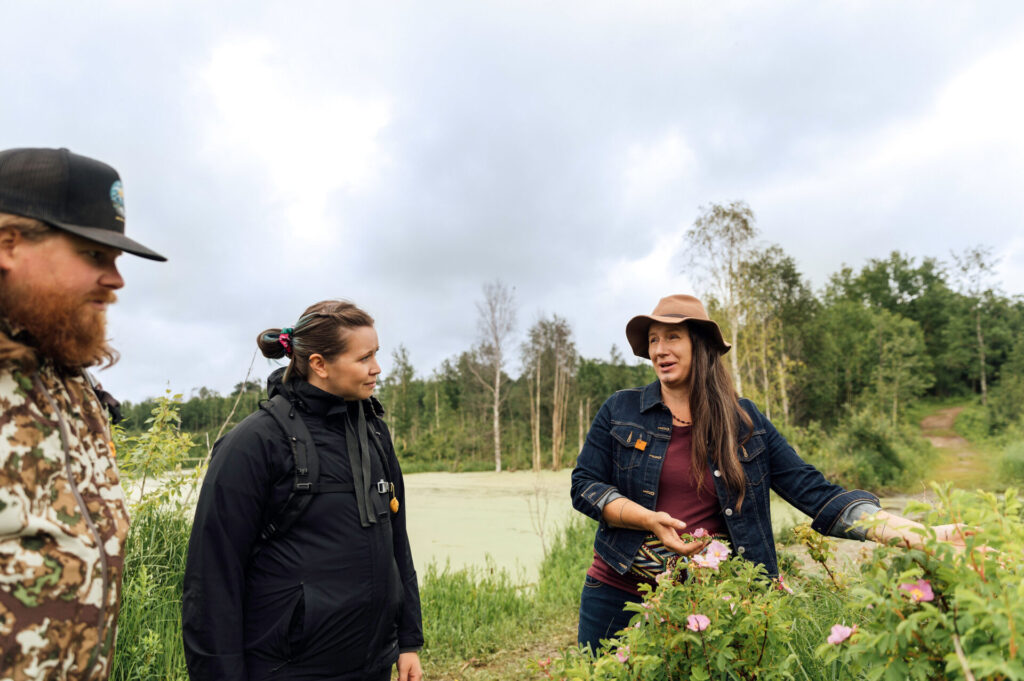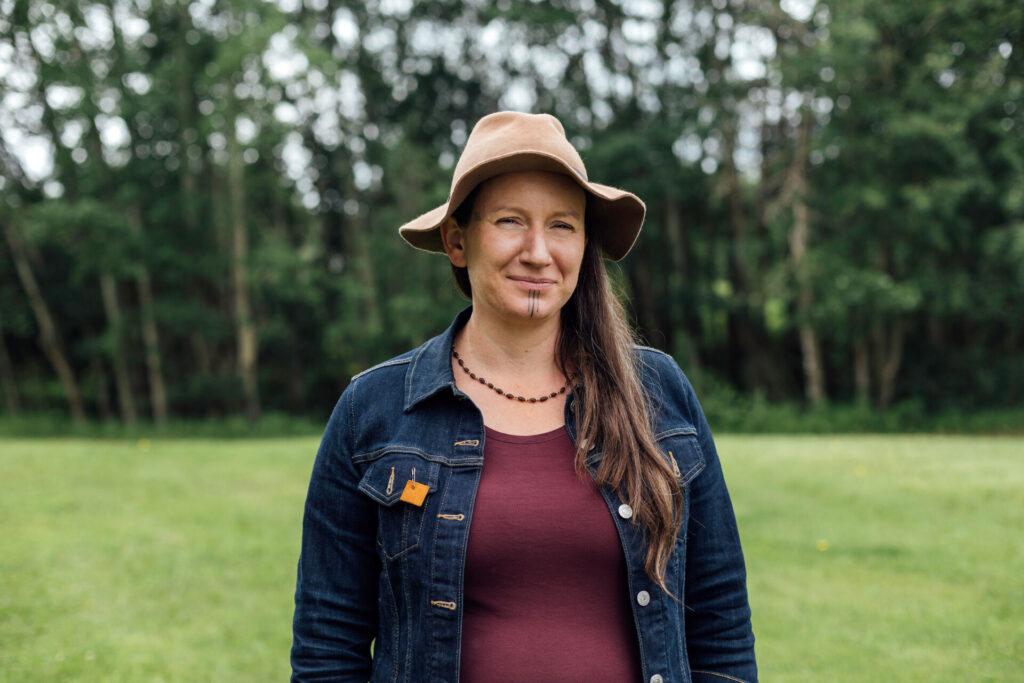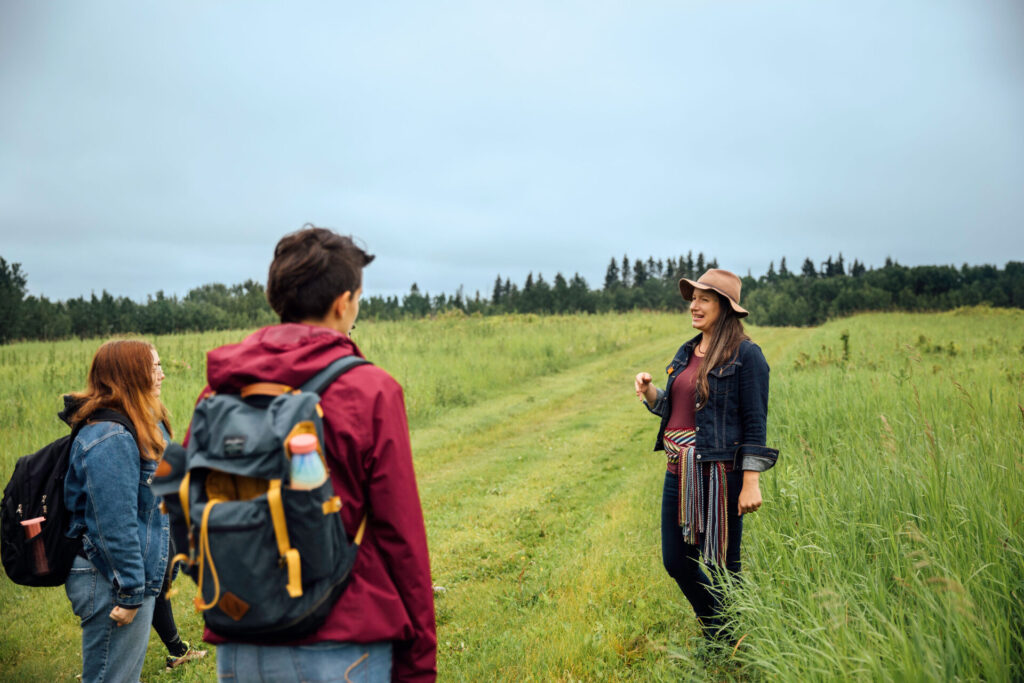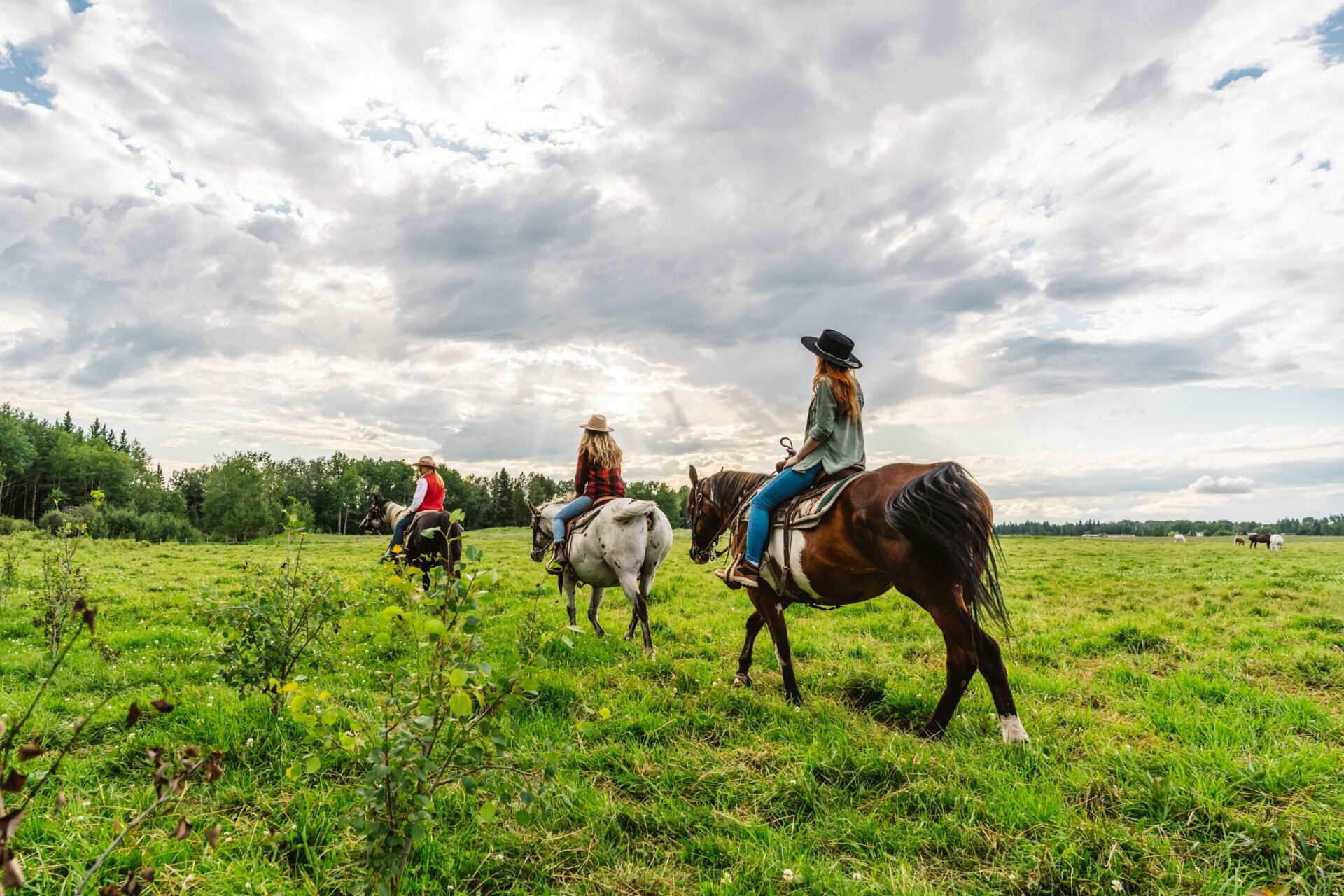
How the sharing of traditional skills led to a thriving community rediscovering culture
Reskilled Life connects people back to the traditional skills that are a part of our combined human heritage.
By Kelsey Olsen. Photographs by Noella Steinhauer

Traditional Indigenous skills are not just a part of the past. Natalie Pepin, Métis owner of Reskilled Life, began sharing her culture, skills and passions with neighbours and friends many years ago. A single mom at the time, Pepin has a unique passion for traditional homesteading skills and Indigenous culture, including tanning hides, making moccasins, soapmaking, knitting, and much more. Pepin valued the belief that these skills are meant to be taken on as a community, as her ancestors had done. To help build community, Pepin created an open Facebook group inviting people to come and learn how to make soap and to her surprise, people showed up — she quickly realized that many people are interested in learning traditional skills.
This was the beginning of Reskilled Life. Today, Pepin offers a variety of workshops and courses geared towards living a simple lifestyle in harmony with the land.
For Pepin, these skills aren’t just something she does as a tourism business. They are a part of her everyday life. She lives off the grid, forages for food, makes homemade soap, and still preserves food for her family. Tanning hides, sewing clothes, making moccasins and other items by hand were things that her Métis ancestors did, but they are still an important part of the way she lives today. She appreciates modern conveniences, but still maintains many of the traditional skills and practices that are an important part of Indigenous culture and heritage.
Helping people connect with the land is an important goal for Pepin. “I don’t do medicine walks. I do plant relationship walks,” Pepin said on a recent Edible and Medicinal Herb Walk with Reskilled Life. She went on to explain the importance of treating plants with respect and admiration as they are living beings that provide us with food and medicine.

Reskilled Life tours also help to build understanding and serve as a step towards reconciliation between settlers and Indigenous Peoples.
“Our families were removed from most of the spaces where we are from,” she said. “What that meant is a lack of access to the lands that fed us. So, when we talk about the removal of Indigenous peoples from our homelands, it’s not just land, it’s a relationship with a place that nurtured us for generations. This is how we repair that relationship.”
Reconnecting with her Métis culture has also given Pepin the special ability to empathize with and help other Indigenous Peoples who seeking to reconnect with their culture. “When we’re disconnected from our culture, we start out as tourists within our own cultures,” she said. “As we learn more and regain that familiarity, amazing things happen.”
Along with her efforts to reunify Indigenous peoples with their culture, Pepin works with people from all cultural backgrounds to share Métis culture, educate and build relationships. Whether she is guiding a herb walk, teaching hide tanning, or running a soap-making workshop, she is mindful of the importance of discussing important concepts like sovereignty, kinship with the land, displacement, residential schools and much more.

“With the teaching that I do, these conversations are the point of it. If these conversations don’t happen, I’m not interested anymore,” Pepin stated. “The purpose of these skills for me, is that they are a doorway for reconciliation.”
As she concluded her Plant Relationship Walk, Pepin thanked the forest for allowing the exploration of life inside of it through a song she was given in the Metis language of Michif.
Kelsey Olsen is a Métis writer and author. Follow her on Instagram at @kelseyrolsen or on www.wanderwoman.ca.
